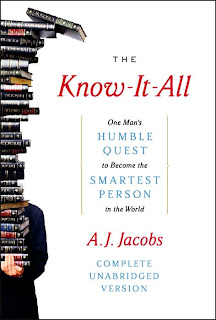
written by Stephen King
I used to have a thing for Stephen King books back in the day. Like way back. Then in my early days of figuring out what I wanted to do with God and spirtuality, I got kind of creeped out by how dark these books were, and I didn't touch any of his stuff for a long while. But I've had this one lying around for about a year and finally decided to pick it back up. It was an impulse purchase I made in a moment of panic when I thought I might need to go on a road trip, bookless ... but then the trip ended up being canceled and I never did get into the book. I tried a couple times, but I just couldn't quite get my interest piqued.
Which brings me to my first complaint about the King of horror: the guy just meanders all over the place in his later writings, and it takes forever to get to the point. But I guess he's entitled to do that now that he's made his millions and can just write for the fun of it. I envy that, actually.
Quick synopsis of the book: it's a disturbing tale (big surprise there, huh?) of a middle-aged writer named Scott Landon, who has been plagued for his whole life by what appears on the surface to be a mental illness that runs in his family. His father and his brother both suffered from extreme and bizarre mental breaks, and Landon's means of escaping from the pain and danger of living with such circumstances leads him to discover (create?) an alternate reality - not a mental one but an actual physical one where he can travel away from his current anguished existence to another "plane" of reality. Not only does that escape route prove to be his means for staying (seemingly) sane, but the whole experience provides him endless material for his career as a horror fiction writer.
So the obvious question here is, did King write this book about himself? Did he suffer under a hellaciously crazed father and a brother who suddenly turned into a dangerous animal-like beast? I don't think so. After reading the book I poked around to find out a little about his life, and it looks to me like he had a fairly ho-hum upbringing. But the guy does have some twisted imagery in his head, let's be clear on that. The book portrays mental illness as startlingly predatory, and I won't spoil the story for you, but I will say that eventually the beastly darkness hunts down some folks, and it's not pretty.
It's actually a really good story once you get into it, and it sated my appetite for something scary, at least for a while. I like King's style and his creativity. So even when he got into the meandering parts of the book, I didn't really mind all that much because his writing is so fun to read. One of his really remarkable skills is to seamlessly take you across many different locations and time periods without being at all confusing. I don't know how he does it so artfully, but I love that. Another notable thing is that there are a lot of subtle but clever references to other literature, and to music. I probably only got half of them (or less!), but they were fun to discover nonetheless.
The only glaringly "off" thing in the story seemed to be that the heroine, Lisey (Scott's wife) was a little too steely. There is no way that any woman (or any person, for that matter), no matter how strong, could endure some of the experiences in this story without completely freaking out into a nervous fit. But whatever. If he had baked that into the story, I'm sure it would have added even more bulk to the already-bulky 653 pages.






















